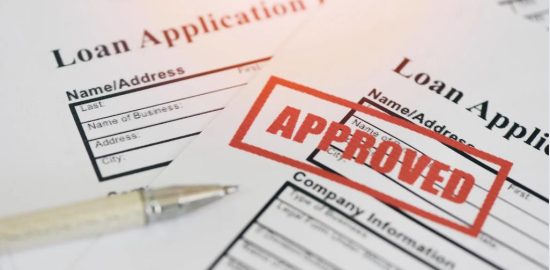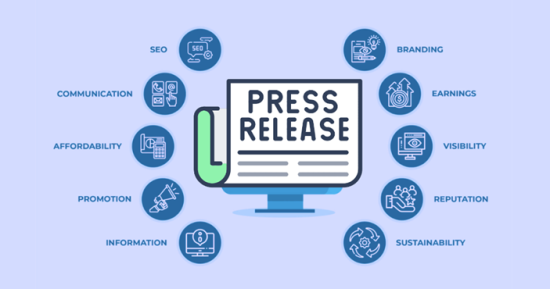
Did you know that the average American has over $96,000 in personal debt? When you need funding for a significant expense, long-term personal loans can provide the flexible financing options you’re looking for. Choosing a loan with a longer repayment term gives you more time to pay back the full balance, potentially resulting in smaller monthly payments.
While this could mean paying more interest over the entire term, you can save on interest by making additional payments without a prepayment penalty. Most personal loan lenders offer terms up to five years, but some lenders provide much longer repayment periods, up to 12 years in some cases. Factors to consider when comparing long-term personal loans include interest rates, fees, loan amounts, repayment terms, credit score requirements, and customer service.
Understanding Long Term Personal Loans
When exploring financing options, long-term personal loans are an increasingly popular choice. These loans typically have repayment terms ranging from 5 to 7 years, a significantly longer period compared to the 1 to 3 year terms commonly seen with shorter-term personal loans. The extended repayment timeline often allows for larger loan amounts, sometimes reaching up to $50,000 or even $100,000 in certain cases.
Benefits of Long-Term Personal Loans
One of the primary advantages of long-term personal loans is the lower monthly payments they can provide. By spreading the repayment over a longer period, borrowers may find the monthly financial obligations more manageable, particularly when financing major expenses or consolidating multiple debts. This can be especially helpful for those looking to maintain a sustainable budget.
Drawbacks of Long-Term Personal Loans
However, the extended repayment period of long-term personal loans does come with some trade-offs. Typically, these loans carry higher interest rates compared to their shorter-term counterparts, which means borrowers may end up paying more in total interest over the life of the loan. Additionally, lenders often have stricter eligibility requirements for long-term loans, such as requiring higher credit scores from applicants.
Understanding the nuances of long-term personal loans is crucial for borrowers to make informed decisions that align with their financial goals and capabilities. By carefully weighing the benefits and drawbacks, individuals can determine if a long-term personal loan is the optimal solution for their specific needs.
When to Consider a Long-Term Personal Loan
Long-term personal loans can be a strategic financing option in various scenarios. These extended-term loans, typically ranging from 5 to 7 years, can provide the flexibility and manageable monthly payments needed to tackle large expenses, consolidate debts, or address unexpected medical costs.However, there are situations where a longer-term personal loan might be worth considering. For instance, if you’re looking to finance a major home renovation, start a business, or pursue higher education, a longer-term loan can provide the financial stability you need.
One question that often arises is, “Can I get a 10-year personal loan?” The answer is yes, in some cases. Certain financial institutions offer terms as long as 10 years for personal loans, allowing borrowers to spread out their repayments and potentially get more affordable monthly installments.
Financing Large Expenses
For significant projects like home improvements, renovations, or other major purchases, a long-term personal loan can be a practical solution. The extended repayment period can make these sizable costs more manageable by spreading out the financial burden into lower monthly payments. This can be especially beneficial when you need to finance a long term personal loan for a what is the longest term for a personal loan? or can we take a personal loan for 10 years? project that requires a substantial investment.
Debt Consolidation
Individuals struggling with multiple debts, such as credit cards, personal loans, or other high-interest liabilities, may find a long-term personal loan useful for debt consolidation. By combining these obligations into a single, potentially lower-interest payment with a how to get a long term personal loan? term, borrowers can simplify their monthly finances and potentially save on interest over the life of the loan.
Medical Emergencies
Unexpected medical expenses can quickly create financial strain, and a which bank gives a 7 year personal loan? or which loan has longest tenure? personal loan can provide a funding solution. When faced with substantial medical bills that exceed your available savings, a long-term personal loan can help cover the costs while allowing you to repay the balance over an extended period, easing the burden on your monthly budget.
While long-term personal loans offer advantages in these scenarios, it’s crucial to carefully consider the how much loan can i get if my salary is 25000?, which bank offers long tenure for personal loan?, and the potential for higher interest costs associated with the extended repayment terms.
Long term personal loans

Long-term personal loans offer flexible financing options with repayment terms typically ranging from 60 to 84 months, or 5 to 7 years. These loans can provide larger loan amounts, often up to $50,000 or even $100,000, making them suitable for financing major expenses or debt consolidation. While the extended repayment period results in lower monthly payments, it also means paying more interest over the life of the loan. Lenders may have stricter credit score requirements for long-term personal loans compared to shorter-term options.
Lenders Offering Long-Term Personal Loans
When it comes to securing a long-term personal loan, consumers have a variety of lender options to consider. These include traditional banks, credit unions, and online lenders, each with their own unique offerings and eligibility requirements. One important factor to consider when exploring personal loans is the loan term, which refers to the length of time you have to repay the loan. This can vary depending on the lender, with some offering shorter terms of a few months, while others provide longer-term options.
So, what is the maximum number of months for a personal loan? While this may vary from lender to lender, many personal loans have terms ranging from 12 to 60 months. However, there are lenders who go beyond this range and offer even longer repayment periods.
Banks
Many established banks, such as Discover, Wells Fargo, USAA, Santander, and U.S. Bank, provide long-term personal loans with repayment terms up to 7 years. However, borrowers may need to be existing customers of these banks to qualify for their long-term lending products. The specific loan amounts, interest rates, and eligibility criteria can vary significantly between different bank lenders. When it comes to financing options, banks are often the go-to choice for individuals looking for personal loans. These loans can provide much-needed financial assistance for a variety of purposes, such as paying off high-interest debt or making a large purchase. However, many people wonder about the duration of these loans and whether they can opt for longer terms.
Credit Unions
Credit unions, known for their member-focused approach, can be a great source for long-term personal loans. Institutions like First Tech Federal Credit Union and Navy Federal Credit Union may offer even longer repayment periods, sometimes up to 15 years, particularly for loans used for home improvements or renovations. The credit union membership requirements and loan terms can differ from one institution to another.
For those who are looking to secure a personal loan, credit unions can be a great option to consider. These non-profit financial organizations offer various services, including personal loans with competitive interest rates. Many people wonder, “Can I get a personal loan for 8 years?” The answer is yes, credit unions often provide the flexibility of longer-term loans.
Online Lenders
In addition to traditional financial institutions, online lenders have also emerged as a popular option for consumers seeking long-term personal loans. Platforms such as LightStream, SoFi, and Upgrade often cater to borrowers with good credit, providing flexible financing options with terms up to 7 years. The application and approval process for online lenders is typically faster and more streamlined compared to brick-and-mortar banks.
When evaluating the various lenders offering long-term personal loans, borrowers should carefully consider factors like credit score requirements, loan amounts, repayment terms, and interest rates to find the best fit for their financial needs and budget.
Factors to Consider When Comparing Loans

When evaluating long-term personal loans, borrowers should carefully consider several key factors to determine the most suitable option for their financial needs and budget. These crucial elements include credit score requirements, available loan amounts, repayment terms, and interest rates.When comparing loans, it is essential to consider various factors that can greatly impact your financial situation.
One important factor to evaluate is the maximum months for a personal loan. Knowing the length of the loan term can help you determine if it aligns with your financial goals and allows you to comfortably make monthly repayments. It is equally important to inquire whether a term loan can be issued for 10 years. This knowledge can be beneficial for individuals seeking a longer repayment period that provides more flexibility and lower monthly payments.
Credit Score Requirements
Lenders typically have higher credit score thresholds for longer-term personal loans compared to shorter-term options. Borrowers seeking a long-term personal loan often need to have a FICO score of 650 or higher to qualify, as lenders view the extended repayment period as a greater risk. Having a good credit score is crucial when it comes to obtaining a personal loan, especially if you’re considering a longer-term loan. Many individuals wonder, “Can I get a personal loan for 8 years?” The answer largely depends on your creditworthiness. Lenders typically have specific credit score requirements for longer-term loans.
Loan Amounts
The loan amounts available for long-term personal loans can vary significantly, with some lenders offering up to $100,000. Borrowers should explore the maximum loan limits offered by different providers to ensure they can obtain the necessary funding to cover their intended expenses. When it comes to loan amounts, borrowers often wonder how much they can borrow and for how long. One common question asked is, “Is a long-term loan good?” The answer depends on your financial situation and goals. Long-term loans generally have lower monthly payments but may accrue more interest over time. It’s essential to evaluate the terms and interest rates carefully before committing to a long-term loan.
Repayment Terms
Repayment terms for long-term personal loans typically range from 60 to 84 months, or 5 to 7 years. However, a few lenders may provide even longer options, extending the repayment period to 10 years or more. The extended term can result in lower monthly payments but may also lead to higher total interest costs over the life of the loan.When it comes to repayment terms, many people wonder about the ideal length of their loan. Is a 10-year loan considered long term? Can one get a personal loan for 8 years? The answer to these questions lies in the flexibility offered by lenders and the borrower’s financial situation.
Interest Rates
Interest rates on long-term personal loans tend to be higher than those for shorter-term personal loans. Lenders often view the extended repayment period as a greater risk, leading to higher annual percentage rates (APRs) for borrowers. Comparing interest rates across multiple lenders can help identify the most cost-effective long-term personal loan option. When it comes to borrowing money, interest rates are a crucial factor to consider. Whether you’re looking for a long-term loan or a personal loan, understanding the impact of interest rates is important. The question often arises, “Is a long-term loan good?” Well, the answer depends on your financial situation and goals.
Application Process for Long Term Personal Loans

The application process for long-term personal loans is similar to that of other types of personal loans. Borrowers will typically need to provide documentation such as proof of income, employment information, and details about their existing debts and assets. Some lenders may also require additional documentation, such as bank statements or tax returns.
Documentation Required
To apply for a long-term personal loan, borrowers will generally need to submit the following documentation:
- Proof of income (e.g., paystubs, W-2 forms, tax returns)
- Employment information (e.g., job title, length of employment, income source)
- Details about existing debts and assets (e.g., credit card balances, mortgage information, bank statements)
- Additional documents as required by the lender (e.g., bank statements, tax returns)
Prequalification Options
Many lenders offer prequalification options for long-term personal loans, which allow borrowers to check their potential rates and terms without a hard credit check. This can be a useful tool for comparing offers from multiple lenders before submitting a formal application. The prequalification process typically involves a soft credit inquiry, which will not impact the borrower’s credit score.
By taking advantage of prequalification, borrowers can get a better understanding of their eligibility and the financing options available to them, allowing them to make an informed decision about the best long-term personal loan for their needs.
Tips for Managing Long Term Personal Loans
Managing a long-term personal loan requires careful budgeting and planning. Borrowers should ensure that their monthly payments fit comfortably within their budget, as the extended repayment period can make it easy to overlook the long-term interest costs. Many lenders offer prepayment options, which can help reduce the total interest paid over the life of the loan.
Budgeting for Monthly Payments
When taking out a long-term personal loan, it’s crucial to carefully consider the monthly payments and how they fit into your overall budget. The extended repayment period, which can range from 5 to 7 years, can make it easy to underestimate the long-term cost of the loan. Borrowers should factor in the monthly payment, along with any other financial obligations, to ensure the loan is manageable over the life of the repayment term.
Prepayment Options
Many lenders offer prepayment options for long-term personal loans, which can be a valuable tool for reducing the total interest paid. It’s important to understand how the lender applies prepayments and whether there are any fees or penalties associated with early payoff. Taking advantage of prepayment opportunities can help borrowers save money and pay off the loan more quickly.
Credit Impact
Making timely payments on a long-term personal loan can have a positive impact on the borrower’s credit score. The loan will be reported to the credit bureaus, and as the borrower demonstrates responsible repayment behavior, it can help improve their credit history and creditworthiness over time.
Alternatives to Long Term Personal Loans

While long-term personal loans can be a suitable option for certain financial needs, there are alternative financing options to consider as well. These alternatives can provide borrowers with potentially lower interest rates or more favorable terms, depending on their individual circumstances.
Home Equity Loans
Home equity loans, which use the borrower’s home as collateral, may offer lower interest rates than unsecured personal loans, especially for those with significant home equity. This type of loan can be particularly beneficial for homeowners who need to fund large expenses, such as home renovations or debt consolidation.
Balance Transfer Credit Cards
Balance transfer credit cards can also be a cost-effective way to consolidate debt, provided the borrower can take advantage of a promotional 0% APR period. This approach can help reduce interest charges and simplify monthly payments, making it easier to pay down outstanding balances.
Peer-to-Peer Lending
Additionally, peer-to-peer lending platforms connect borrowers directly with individual investors, potentially resulting in more favorable terms than traditional lenders. These platforms may offer competitive interest rates and flexible repayment options, making them an attractive alternative for some borrowers.
Each of these alternatives has its own set of pros and cons that should be carefully evaluated before making a decision. Borrowers should consider factors such as interest rates, loan amounts, repayment terms, and any associated fees or collateral requirements when comparing their options.
Common Questions About Long-Term Personal Loans
When it comes to long-term personal loans, there are several common questions that borrowers often have. What is the maximum loan term offered by lenders? Can individuals with poor credit qualify for long-term loans? What are the typical interest rates charged on these types of loans? Let’s address some of the most frequently asked queries about long-term personal financing options.
One of the most common questions is regarding the maximum repayment period for long-term personal loans. While the standard personal loan term is typically 5 years or less, some lenders may offer extended terms up to 7 or even 10 years in certain cases. However, the availability and specific terms can vary significantly by lender and may depend on factors such as the borrower’s credit profile and the loan amount.
Another frequent query is whether individuals with poor credit can qualify for long-term personal loans. The truth is, lenders often have stricter credit score requirements for these extended-term loans, typically seeking borrowers with FICO scores of 650 or higher. Borrowers with lower credit may find it challenging to secure a long-term personal loan, though they may still have options for shorter-term financing.
When it comes to interest rates, long-term personal loans tend to come with higher annual percentage rates (APRs) compared to their shorter-term counterparts. This is because lenders view the extended repayment period as a greater risk, and they often charge a premium to compensate for this increased uncertainty. However, the specific interest rate can vary widely based on the lender, the borrower’s creditworthiness, and other factors.
Ultimately, the key to successfully navigating the world of long-term personal loans is to carefully research and compare offers from multiple lenders, considering not just the interest rate but also the loan terms, fees, and overall cost of the financing. By understanding the unique features and requirements of these loans, borrowers can make an informed decision that aligns with their financial goals and budget.
In conclusion, long-term personal loans can provide flexible financing options for borrowers who need to cover large expenses or consolidate debt. While the extended repayment period results in lower monthly payments, it also means paying more interest over the life of the loan. Consumers should carefully evaluate factors such as credit score requirements, loan amounts, repayment terms, and interest rates when comparing long-term personal loan offers from banks, credit unions, and online lenders.
By understanding the benefits and drawbacks of this type of financing, borrowers can make an informed decision about whether a long-term personal loan is the right choice for their financial needs. Whether it’s financing a home renovation, consolidating high-interest debts, or addressing unexpected medical bills, long-term personal loans can be a valuable tool in managing one’s financial obligations.
As the demand for flexible, long-term financing options continues to grow, it’s essential for borrowers to explore the range of personal loan products available in the market. By carefully weighing the factors and seeking out the best terms, consumers can unlock the potential of long-term personal loans to achieve their financial goals and maintain a healthy financial well-being.
FAQs on Long-Term Personal Loans
What are long-term personal loans?
Long-term personal loans have repayment terms typically ranging from five to seven years or more, allowing borrowers to do smaller monthly payments over an extended period.
What are the benefits of long-term personal loans?
Long-term personal loans offer a range of benefits. They allow for lower payments monthly, which can help you control your budget more effectively. Additionally, they provide the opportunity to finance significant expenses without immediate financial strain, giving you the flexibility you need.
Are interest rates higher for long-term personal loans?
Interest rates for long-term personal loans can be higher than short-term loans. This is because the extended repayment period increases the risk for lenders. Other reasons that can influence interest rates include the credit score of the borrower and the current economic conditions.
What can long-term personal loans be used for?
Long-term personal loans can be helpful for various purposes, such as home renovations, debt consolidation, medical expenses, or large purchases.
How does the repayment schedule work for long-term personal loans?
The repayment schedule for long-term personal loans involves fixed monthly payments over the agreed-upon term, making budgeting more accessible for borrowers.






